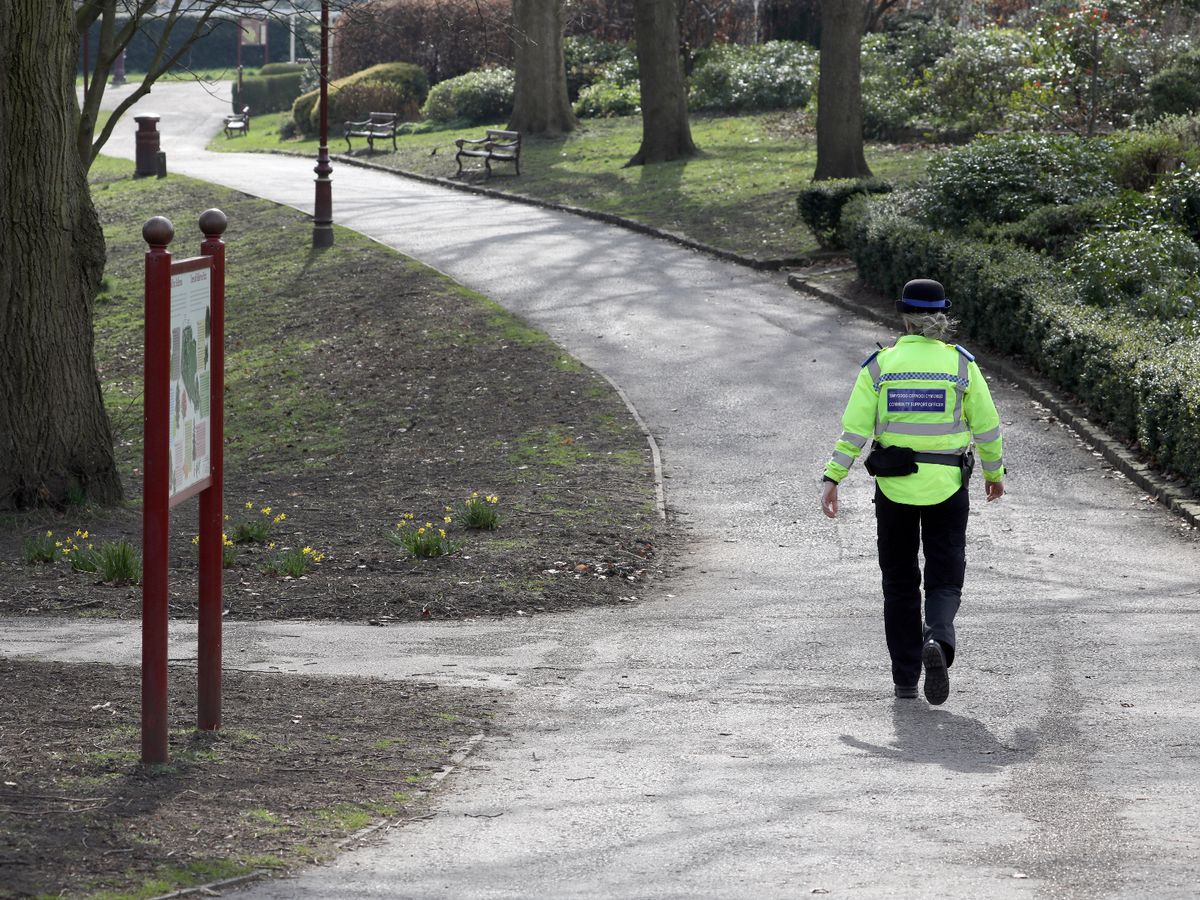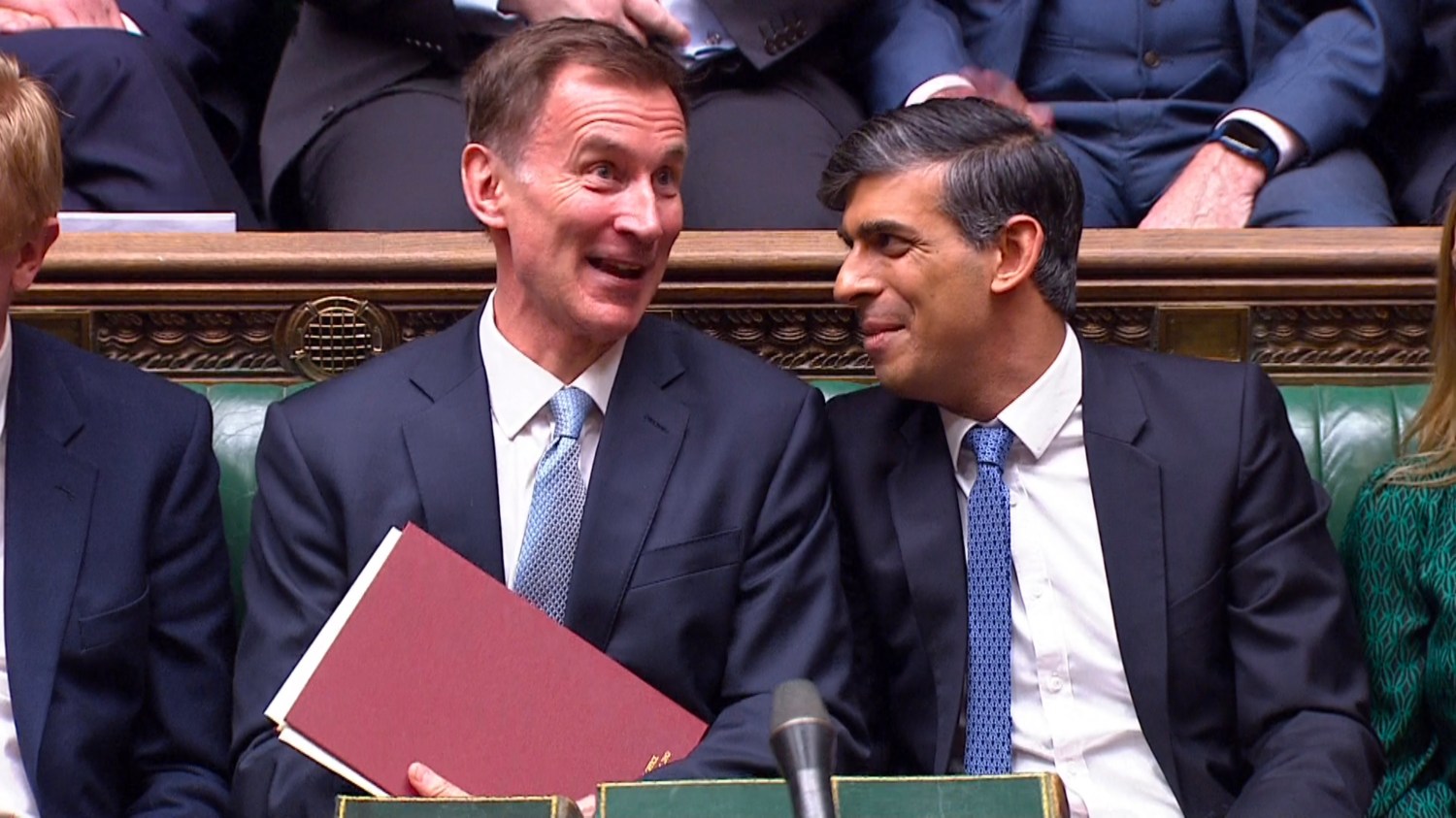Comment
Opinion of Jonathan Edwards MP: Easing the lockdown

Jonathan Edwards MP
BY the end of this Bank Holiday weekend, we are expecting further announcements by the Labour Government in Wales and the British Government on the next stage of the lockdown policy.
My party strongly advocated the current suppression strategy and was critical of the initial herd immunity strategy pursued. The high levels of mortality in Wales and the UK indicate that we were right in our position.
In many ways, initiating a lockdown policy was the easy part; however, we must remember that the lockdown is not a cure for the virus. Its primary purpose is to create the breathing space required to build up capacity in our health systems to deal with the pandemic whilst we wait for a vaccine that could be a long time coming.
We are faced with a virus that is very dangerous for the health of so-called “high-risk” groups, which tend to be the elderly and those with respiratory problems or other health complications. The mortality rate is as high as 10% in those groups if infected.
Evidence suggests that as much as 20% of the population are in high-risk groups – and we obviously hope that as our scientists learn more about the virus that we can narrow that group down further to identify a core high-risk group. However, this will take time, and time is not known as a normal political commodity – especially in times of crisis.
The challenges posed by lifting restrictions will dwarf those of imposing the lockdown in the first place.
For my part, I support extending the restrictions simply because we don’t know enough about the virus as of yet. We also certainly don’t have the required testing capacity in Wales (and across the UK), and critically also lack the contact tracing infrastructure to pursue an eradication strategy. However, as I pointed out in a debate on lockdown regulations in the House of Commons this week, the Labour Government in Wales needs to start explaining its policy better, especially the rationale behind lifting any restrictions, if they are to maintain public confidence.
Opposition politicians suffer from a severe disadvantage as we do not receive the expert advice provided to Ministers. This is a serious and unhelpful disadvantage during a pandemic crisis. Scrutiny of decisions is vital in any democracy as it supports transparency and accountability. I would therefore strongly urge the Labour Government in Wales to publish the scientific advice it is using to base its decisions. I also suspect it would be to its own good in the long term and would provide a glowing contrast to the secrecy behind British Government policy.
I have no idea what our national government will announce. However, in this week’s debate, I emphasised that if the so-called “four-nation” approach in the UK was to mean anything, then all four government needed to agree on policy.
Joint decision making between the Welsh, Scottish, Northern Ireland and the Westminster Governments must be the way forward in this pandemic and the future post-Brexit British State.
If looking for a good example of policy, look no further than our cousins across the Celtic sea.
The Republic of Ireland was way ahead of the British State when it came to banning mass gatherings and introducing the lockdown. Whilst the British Government maintains no restriction on open borders, anyone travelling to the Republic has to self-isolate for 14 days on arrival.
It’s amazing what these small independent countries can achieve.
Over the weekend, the Republic of Ireland announced their detailed plans for lifting their lockdown in some detail, and many other Governments across the world are communicating with the same level of transparency and clarity. The Irish Government have set out five phases.
Phase 1 commencing on 18 May, will allow outdoor meetings between people from different households. The fifth phase, commencing in August, will allow larger social gatherings and a return to work across all sectors. Schools are not expected to return until the new academic year, and only then in a phased manner.
Regrettably, I will not be holding my breath for anything as comprehensive from the Tories in London and Labour in Wales.
Comment
Y Gymraeg mewn ysgolion Cymraeg yn darllen ymlaen yn English

I make no apologies for being unable to speak Welsh, writes John Elliot.
Google translate did the title for me. I apologise to Welsh readers should the Welsh be dreadful.
My Dad was a labourer in a factory. We are talking 1960’s here. Mum and Dad were ignorant of education, they hadn’t a clue what ‘O’ levels were. And my older sister was learning French! This was like, well, there is a man on the moon after all. One day my dad said, talking about learning French, ‘I think your school, Rosie, should have a day a week where only French is spoken. You’d learn a lot better.’
Like my sister, I ‘learned’ French in school. She went onto to study it in college. I really couldn’t be bothered. Maybe though it was the way I was taught. A lesson or two a week by rote, repetition and irrelevant. When was I going to need French? Like since 1995 when I moved to France.
Because of a language project I’m working on with a university in Hungary I’ve become very interested in the purpose of the Welsh language. Also, very importantly, my granddaughters were born in Wales and attend Welsh medium schools.
For the purpose of the project with the university I contacted the Welsh Education Secretary in relation to how Welsh is taught in Schools. My interest was school and teaching within the state section. The bill is itself 55 pages long. I have taken 11 points from it, so a minority of the text relevant to my interest in the
Welsh language in Wales and the current government’s attitude to it. This is a current bill and has yet to be passed by the Senned. The following points I am confident that they represent the words of the bill, but of course they are subject to my interpretation and editing. I think they will be of particular interest to parents, and of course those interested in language.
The bill, with reference to Wales, is making the following points:
- Every pupil should be allowed, deserves, to be a confident Welsh speaker.
- There is a commitment to all pupils receiving a portion of their education through the medium of Welsh beyond Welsh as a subject.
- In the ideal world 50% of pupils should receive Welsh education.
- At present there are half a million Welsh speakers, it is hoped that figure will be 1 million by 2050.
- The desire is for an education system to embrace Welsh as a language that belongs to all pupils in Wales. All pupils leaving statutory education at 16 can speak Welsh with confidence.
- It is hoped that the number of Welsh-medium schools (that is those schools whose education is mainly in Welsh) will be increased. It is hoped that there will be an increase in the teaching of Welsh in schools. To achieve this there needs to be an increase in the number of people able to teach Welsh and through the medium of Welsh.
- It is intended that there will be dual language schools as well as Welsh-medium schools. There are already some.
- With the proposal set out in this bill it is stated:
- We expect local authorities to pay attention to promoting and raising awareness of Welsh-medium education.
- An organisation for playgroups within Wales is Mudiad Meithrin. These are Welsh-medium playgroups for pre-school children. The language spoken is Welsh. Mudiad Meithrin states that 76% of their intake is from non-Welsh speaking families.
- In 2015 The National Centre for learning Welsh was set specifically for adults wishing to learn Welsh.
- It is worth noting that, to use contrasting examples in Gwynedd there are 80 Welsh medium schools and zero English schools. In Cardiff there are 18 Welsh medium schools and 96 English schools.
As I’ve already mentioned my granddaughters, pictured here are bi-lingual, English and Welsh. They speak both languages as if it were the norm, this is what we do. I live in France. The girls have already picked up some French. My grandson was born in Belgium. His birth language is English. His school language is French. He is also bi-lingual. Flemish is also spoken in Belgium, he confident in Flemish.
John Elliot works as an editor of poetry anthologies with different universities throughout Europe. He is currently producing an anthology of Welsh poets translated into English, Hungarian and German
Comment
The Chancellor’s fancy footwork solves nothing

THE CONDITIONAL phrase is a friend to politicians of all parties in all governments.
At its simplest, the proposition is: “If this happens, then we might be able to do this”.
The Chancellor’s Budget on Wednesday (Mar 6) was an example of the conditional phrase on steroids.
IT ALL DEPENDS
“If this happens, then that happens, and provided these things also happen, we might be in a position to consider doing this”.
As a strategy for spending on public services, it’s nonsense.
The UK Government is not in control of events that might affect its capacity to achieve even stage one of the processes that, on some far-away date, might mean it gets close to delivering public services more efficiently.
Let’s get that out of the way, for starters.
That is quite bad enough, but the Chancellor – not alone in this fiscal fraud – goes one step further.
Mr Hunt says the UK must cut its national debt, the amount it has borrowed to pay for Covid, Liz Truss, and other disasters. That objective is noble but meaningless. The debt the UK owes will rise over the next three years. It will only fall in the fifth year of the spending cycle and then only against the previous year’s debt.
That means the amount of debt the UK is in will rise over the next half-decade.
In turn, future repayments of that debt’s capital must be met out of future government revenues. The limited number of ways that can happen include refinancing the debt (putting off the payment to the future), raising taxes, and cutting public spending: probably a mix of all three.
The disingenuous lunatics on the Conservative right-wing bang on about how it’s all the Office of Budget Responsibility’s fault. The rules on debt and fiscal policy are not the OBR’s rules. They are the Chancellor’s. The OBR applies them to the Chancellor’s spending and taxation plans.
It is rather like Harold Shipman complaining he only murdered his victims because the pharmacist supplied him with poison. The intent is all on the Chancellor’s part.
Keir Starmer claimed the Government had “maxed-out” the nation’s credit card.
He is right, but only to an extent.
The central flaw in fiscal policy is that the Treasury—and therefore the Office of Budget Responsibility—fails to distinguish between borrowing and spending for investment and borrowing and spending to deliver day-to-day services and to make up for revenue shortfalls.
As Labour has chained itself to the wheel of the current spending approach, we will have to get used to paying more for less for years to come.
Any UK Government could borrow for future investment, putting the National Debt above 100% of GDP. However, that will likely increase the cost of borrowing and devalue the assets securing the current debt, such as UK Government bonds.
The markets wouldn’t wear that when Liz Truss tried it. They won’t wear it now. Borrowing more money while cutting taxes is like taking out a £500,000 loan, leaving a well-paid job that could service it, and deciding to work three shifts a week on a filling station forecourt.
Sooner or later, the bailiffs come knocking.
THE BOTTOM LINE
The political back-and-forth is interesting only to those with little stake in the Budget’s outcome, at least as it affects average families on average incomes.
A billion here, a hundred million there. Those are empty numbers.
The bottom line matters.
The Chancellor announced a cut in National Insurance from 10% to 8%. Last year, he reduced it by 12% to 10%. Forgetting, of course, that his predecessor (Sunak, R.) increased National Insurance in the first place.
However, Mr Hunt did not increase the wage level at which National Insurance starts being paid. That means the amount by which most workers on modest or average wages benefit from an NI cut will be eaten up by any pay increases they’ve received over the last two years of high inflation.
The income tax thresholds also remain stationary, pulling more people into paying the basic rate thanks to pay increases and the increased National Minimum Wage.
It’s sleight of hand. An apparent tax cut will leave people superficially better off but no richer.
In other titbits, the Chancellor announced the continuation of the 5p levy reduction on fuel for motor vehicles and a freeze on the duty on booze.
Mr Hunt also unveiled a new tax on vaping products from October 2026, linked to the levels of nicotine they deliver. At the same time, tobacco duty will rise by £2.00 per 100 cigarettes to ensure vaping remains cheaper.
From this April, the threshold at which small businesses must register to pay VAT goes up from £85,000 to £90,000. It’s something, but not much of something, as the threshold’s been frozen for the last seven years.
Mr Hunt also scrapped tax reliefs for the owners of furnished holiday lets. Holidays let owners claim capital gains tax reliefs and plant and machinery capital allowances for items such as furniture and other fixtures. At the same time, their profits can count as earnings for pension purposes.
Abolishing that tax break will save the UK government around £250 million annually starting from April 2025.
Holiday let investors could lose an average of £2,835 a year in tax, based on a property purchase price of £350,000, an annual mortgage rate of 4.5%, and £20,000 in rental income.
PUBLIC SERVICES IN LIMBO
The constant drive for “greater efficiency” in the public sector boldly and unfoundedly assumes that public service “productivity” is the same as the private sector’s. It isn’t.
Making a pin more efficiently through the division of labour is not the same as treating a patient for cancer or collecting bins.
In all efficiency drives, the point always arrives when there are no more lightbulbs or photocopiers to turn off at night, meaning savings must be found in frontline service budgets. Mr Hunt announced plans to “digitally transform” the NHS. Fat chance. The atomisation of the NHS into trusts and boards that must compete for money by offering the most at the least cost dooms the project to expensive failure.
The same applies to local government funding and extends to Wales.
Councils competing against each other for a finite pot of resources only available to spend on what the central Government insists it is spent on negates local democracy. It favours those local authorities closest to the Central Government or with the best grants application team.
Competition for funding is no way to deliver public services and leads to vanity projects.
It is better to deliver funding fairly and through a method that ensures funding follows the need for core services.
The question is acute in Pembrokeshire.
Our Council received millions of pounds in funding for projects Pembrokeshire does not necessarily need. The money would have been better allocated to the cost of adult social care delivery. However, the UK and Welsh Governments did not make tens of millions of pounds available to meet that need. Instead, we can have money for “Instagrammable bridges” and “transport hubs” because we won a prize in a competition with other broke local authorities to build things we don’t need.
It’s nonsense. And, at heart, every county councillor knows it is.
Any elected representative (whether councillor, MP, or MS) who doesn’t is unfit for public office.
Comment
Free digital drop-in events to help you get connected

DO you or a friend or family member need support with digital technology?
Would you like to know how to use a smartphone, tablet, an Alexa, or another digital device?
If so, a series of free, drop-in sessions across the County will help you get connected (see below).
You can bring your own digital device, tablet or mobile phone or use one of the free access computers. Please ask questions and get support.
Matthew Wall from the Digital Community Support team said: “We’re here to help anyone who wants to get to grips with digital technology, and is unsure about where to start.”
Drop in to find out how to help you:
- Get online.
- Keep in touch with your family, friends and local community.
- Make life easier at home with technology.
- Identify how technology can help you look after somebody.
- Make the most of your device for entertainment and information.
- Set up a borrowbox account (to access E-Book service)
- Find out what digital equipment you can borrow.
- Find out about training.
- No broadband at home? No problem. Just drop in for more details.
Laura Evans from Pembrokeshire Libraries team said: “The aim of the digital drop-in sessions are to help and support the local community with their devices and accessing the internet.
“Libraries play a key role in providing access to technology, which can help combat isolation and loneliness. Having drop in sessions helps people to connect in a way that they would not be able to do on their own.”
Digital devices can support in so many ways. For example, if you look after someone or are cared for, find out how technology can help you from scheduling appointments, medication reminders or simply feeling safe in your home.
Digital Drop In sessions are FREE to access and open to everyone. There is no need to book, just turn up between the allocated times throughout the day.
The Digital Community Support Team are offering sessions at the following Pembrokeshire Libraries.
All sessions are 10am-12pm and 1pm-4pm.
Glan-Yr-Afon, Haverfordwest Library (01437 775244), Thursday November 16th.
Pembroke Dock Library (01437 775825), Wednesday November 22nd.
Tenby Library (01437 775151), Thursday November 23rd.
Fishguard Library (01437 776638), Friday November 24th.
Milford Haven Library (01437 771888), Thursday December 7th.
The digital community support team is funded by Welsh Government.
If you have any questions or would like support, please phone 01437 764551 and ask for Digital Community Support or email [email protected]
-

 News6 days ago
News6 days agoSearch for missing teenager Luke continues at Pembroke Dock
-

 News4 days ago
News4 days agoPolice issue update on the search for Luke, missing from Pembroke Dock
-

 Crime7 days ago
Crime7 days agoEstate agents admit health and safety failings following fatal market incident
-

 News6 days ago
News6 days agoMan jailed after scarring police officer in Narberth altercation
-

 News6 days ago
News6 days agoPembrokeshire hostel manager narrowly avoids jail sentence
-

 Sport5 days ago
Sport5 days agoHerbrandston Clinch Promotion to Division One
-

 News3 days ago
News3 days ago20mph U-turn: Some roads will return to 30mph following public outcry
-

 Community3 days ago
Community3 days agoMiracle pup finds her forever home after heart-wrenching journey































